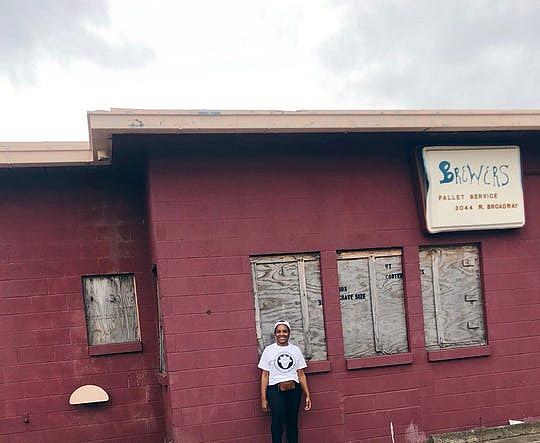This nonprofit leader is giving west Louisville the black-owned grocery it 'deserves'
The Courier Journal's continued coverage of food insecurity in Louisville is supported by the University of Southern California Center for Health Journalism's 2018 National Fellowship.
Other stories in this series include:
Tell us: How do you get food where you live in Louisville?
Dare to Care relocation may bring job training, grocery to the West End
Shelby Park's Save-A-Lot closed with little warning to neighbors
Sorry, we're closed: How everyone is hurt when grocery stores shut down
In 30 seconds: What you should know about food deserts in Louisville
Tuition or food? How college kids use food pantries to help food insecurity
Louisville has a fresh food problem. Can we fix it?
'A real crisis in Louisville': Readers respond to food desert series
How a low-income Louisville neighborhood became a fresh food oasis
How can cities end food deserts? Here are 4 solutions that worked
Louisville families shouldn't be struggling to find fresh food
No grocery store in your neighborhood? Join forces to create one
People can't get to a grocery store easily. So these volunteers are driving them
Would you shop at a mobile grocery store? Kroger is betting on it
Where You Live Determines How Much Your Eggs Cost at Kroger
How some residents get their food in Louisville's food deserts
Can indoor farming fix food deserts? These Louisville students think so
Kentucky's hunger initiative earns national attention. But thousands still need food
How these Louisville companies are helping employees buy affordable fresh produce
Downtown Louisville is growing rapidly. So why doesn't it have a grocery store?
Louisville kids are still at risk for lead poisoning. Here's how healthy eating can help
When will downtown Louisville get a grocery store? Here's what we found
Everything you need to know about Kroger's mobile grocery store in Louisville
Kroger's mobile market brings fresh food to Louisville neighborhoods without access

(Photo: Courtesy photo)
LOUISVILLE, Ky. – An industrial building at the edge of two West End neighborhoods doesn't look like much now. But Megan Bell sees something grand for its future.
The founder of a local nonprofit has visions of transforming the shuttered eyesore into a thriving grocery.
Called The Next Door Market, Bell imagines a store that will bring a new option for fresh, healthy foods to a predominantly low-income area.
A store that will employ people with minor felonies who struggle to land jobs. And that will serve as a funding source for her two-year-old nonprofit, Virtuous Women of Empowerment.
"I want to give the community what they deserve," said Bell.
"I want to reach the community in different ways that are not happening right now with other corner stores or grocery stores."
Bell said she decided to pursue the grocery store after learning about food deserts in west Louisville.
In 2015, the U.S. Department of Agriculture identified large swaths of Louisville as food deserts, meaning the 44,000 people who lived in those areas did not have the money or transportation they needed to buy healthy, affordable food.
Bell said she had been thinking of ways to support her nonprofit through a business and thought a market in the West End could help address several community problems – including unemployment and disinvestment in the predominantly black neighborhoods.
"Me being an African American woman would be even bigger because 91% of Russell residents are black," Bell said. "To see something like that for the younger generation means a lot to me, as well."
Bell landed on the location for the market after she was connected to property owner Neville Barrett.
Bell said Barrett has agreed to rehabilitate the abandoned building while Bell outfits its interior.
To do so, Bell hopes to raise $1 million through grants, crowdfunding and additional investments.
She's also launching a community cookbook this month, with proceeds going toward the store. The cookbook will include recipes from different cultures and countries, including Africa and India.
"We wanted to do something like that because the store's for the community," Bell said. "... There's always a story behind why you're cooking something, especially if it's a tradition."
[This article was originally published by courierjournal.]

